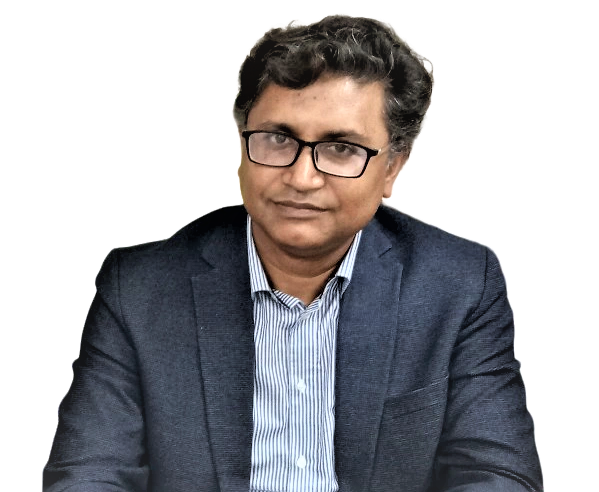Renowned Speakers

Dr. Edwin Ralph
Professor University of Saskatchewan, Canada

Don M Coltart
University of Houston, USA

Sybille Krauss
Deutsches Zentrum Neurodegenerative Erkrankungen, Germany

Massimo Cocchi
Paolo Sotgiu Institute for Research , Switzerland

Prof.Dr.M.S.Kabir Jewel
Former Consultant Psychiatrist,Ministry of Health,Saudi Arabia United Arab Emirates

Professor Fang Yiru
Shanghai Jiao Tong University School of Medicine, China

Galina Mindlin
University of New England, Australia

Lobna Karoui
Artificial Intelligence Leader, France
Recommended Global Neuroscience Webinars & Conferences
Asia Pacific & Middle East
Mental Health Congress 2026
- About the conference
- Why to attend?
- Scientific sessions/tracks
- Benefits of Participants
- Market analysis
- Visa Process
- Past Conference report
About the conference
Attend the 38th International Conference on Mental Health & Psychiatry in Paris, May 18-19, 2026. Explore the latest in mental health research and innovations.
Welcome to the 38th International Conference on Mental Health and Psychiatry, this will take place on May 18-19, 2026, in the vibrant city of Paris, France. The aim of this conference, " Breaking Barriers, Building Bridges: Global Innovations and Holistic Approaches in Mental Health and Psychiatry" is to bring together practitioners, researchers, and specialists from around the globe to discuss and tackle the pressing issues that the internal medicine field is currently facing.
Among the topics covered by the extensive program of keynote presentations, plenary sessions, interactive workshops, and poster presentations at the International Medicine Conference are Clinical Psychiatry, Psychological Research, Neuroscience and Mental Health, Child and Adolescent Psychiatry, Geriatric Psychiatry, Mental Health Policy and Advocacy, Digital Mental Health, Psychotherapy and Counselling, Emergency Psychiatry and Crisis Intervention, Community and Public Mental Health, Cultural and Global Perspectives and Innovations and Future Directions.
The conference will provide a forum for young academics and students to showcase their work and get sage guidance from seasoned professionals in the industry. We kindly invite you to join Mental Health Congress 2026 in Paris for an enriching and thought-provoking experience. We highly recommend that you submit your abstracts if you want the opportunity to present your discoveries and innovations to a global audience of peers and professionals.
Why to attend?
- Cutting-Edge Research and Insights:
- Stay ahead of the curve with access to groundbreaking research, emerging therapies, and the latest advancements in mental health and psychiatry that can transform your practice or research.
- Expert Speakers and Thought Leaders:
- Hear from renowned experts and thought leaders as they share their insights and experiences, and engage in dynamic discussions with leading professionals on current challenges and future directions in mental health
- Networking Opportunities:
- Connect with fellow professionals, researchers, and practitioners from around the world, and build valuable relationships that can lead to collaborative projects, research opportunities, and career advancement.
- Educational Workshops and Sessions:
- Participate in interactive workshops and sessions designed to enhance your skills and knowledge, while discovering new tools, techniques, and best practices you can apply in your own work.
- Global Perspective:
- Understand how mental health and psychiatric issues are addressed across different cultures and countries, and explore global initiatives and frameworks aimed at improving mental health care worldwide.
- Inspiration from Paris:
- Enjoy the vibrant cultural and historical atmosphere of Paris, and take advantage of this unique opportunity to explore the city—combining professional development with personal enrichment in an inspiring environment.
- Professional Development:
- Earn continuing education credits or certifications to enhance your professional credentials, while staying updated on industry standards and regulations to ensure compliance and effectiveness in your practice.
- Innovative Solutions:
- Discover innovative approaches to mental health challenges, including new technologies and treatment modalities, and engage with pioneers in the field who are shaping the future of mental health care.
Who should attend?
- Mental Health Professionals: Psychiatrists, psychologists, psychiatric nurses, social workers, and therapists.
- Researchers and Academics: Individuals conducting research in mental health, psychiatry, psychology, and related fields.
- Healthcare Providers: General practitioners, primary care physicians, and other healthcare professionals interested in mental health.
- Policy Makers and Advocates: Individuals involved in shaping mental health policies and advocating for mental health issues.
- Students and Trainees: Those studying mental health, psychiatry, psychology, and related disciplines.
- Healthcare Administrators: Professionals involved in the management and organization of mental health services.
- Industry Representatives: Companies and organizations that produce mental health-related products and services, such as pharmaceuticals, medical devices, and digital health solutions.
Scientific sessions/tracks
Track 1: Digital Psychiatry & AI in Mental Health
Digital Psychiatry leverages technology and AI to enhance mental health care through tools like telepsychiatry, mobile apps, and virtual therapy. These innovations improve access, especially in remote areas, and support early detection of conditions using AI to analyze speech, behavior, and biometric data. Chatbots and digital platforms provide immediate, scalable mental health support. However, challenges around data privacy, bias, and equitable access remain. This track explores how digital tools can complement traditional care, ensuring ethical, effective, and inclusive mental health solutions for a rapidly evolving global landscape.
Related Topics: Neurology Conference 2026 | Mental Health Congress 2026 | Psychiatry Conference 2026 | Mental Health Conference | Psychiatry Congress Paris | Mental Health Summit France | Psychology Conference 2026 | Behavioural Science Conference | Clinical Psychiatry Conference | Neuroscience and Psychiatry | Mental Wellness Summit | Psychiatric Disorders Conference
Related Societies: Global Mental Health & Psychiatry Society | International Society for Mental Health & Psychiatry | World Psychiatry & Mental Wellness Association | International Mental Health Forum | Global Alliance for Psychiatry & Mental Health | World Society of Psychiatry & Mental Care | International Council on Mental Health & Psychiatry | Global Mental Wellness Network | International Association for Psychiatry & Mental Health | World Mental Health & Psychiatry Organization
Track 2: Post-Pandemic Mental Health Challenges
The COVID-19 pandemic has left a lasting impact on global mental health, triggering a surge in anxiety, depression, PTSD, and burnout. Vulnerable groups such as frontline workers, children, the elderly, and those who lost loved ones face unique psychological burdens. Social isolation, economic instability, and disrupted routines have deepened emotional distress worldwide. This track focuses on identifying emerging mental health trends post-pandemic, rebuilding resilient communities, and developing long-term strategies for prevention and care. It also emphasizes strengthening mental health systems, promoting digital interventions, and addressing stigma to prepare for future global health crises.
Related Topics: Neurology Conference 2026 | Mental Health Congress 2026 | Psychiatry Conference 2026 | Mental Health Conference | Psychiatry Congress Paris | Mental Health Summit France | Psychology Conference 2026 | Behavioural Science Conference | Clinical Psychiatry Conference | Neuroscience and Psychiatry | Mental Wellness Summit | Psychiatric Disorders Conference
Related Societies: Global Mental Health & Psychiatry Society | International Society for Mental Health & Psychiatry | World Psychiatry & Mental Wellness Association | International Mental Health Forum | Global Alliance for Psychiatry & Mental Health | World Society of Psychiatry & Mental Care | International Council on Mental Health & Psychiatry | Global Mental Wellness Network | International Association for Psychiatry & Mental Health | World Mental Health & Psychiatry Organization
Track 3: Neurodiversity and Inclusion
Neurodiversity recognizes and respects neurological differences such as autism, ADHD, dyslexia, and Tourette’s as natural variations of the human brain. This track highlights the importance of creating inclusive environments in education, workplaces, and healthcare that support diverse cognitive styles. It explores strengths-based approaches, personalized interventions, and advocacy for equitable access to services. Addressing stigma, promoting self-advocacy, and training professionals in neuroinclusive practices are key focuses. By embracing neurodiversity, mental health systems can foster dignity, empowerment, and meaningful participation for all individuals, shifting from a deficit-based model to one that values diverse ways of thinking and being.
Related Topics: Neurology Conference 2026 | Mental Health Congress 2026 | Psychiatry Conference 2026 | Mental Health Conference | Psychiatry Congress Paris | Mental Health Summit France | Psychology Conference 2026 | Behavioural Science Conference | Clinical Psychiatry Conference | Neuroscience and Psychiatry | Mental Wellness Summit | Psychiatric Disorders Conference
Related Societies: Global Mental Health & Psychiatry Society | International Society for Mental Health & Psychiatry | World Psychiatry & Mental Wellness Association | International Mental Health Forum | Global Alliance for Psychiatry & Mental Health | World Society of Psychiatry & Mental Care | International Council on Mental Health & Psychiatry | Global Mental Wellness Network | International Association for Psychiatry & Mental Health | World Mental Health & Psychiatry Organization
Track 4: Trauma-Informed Care and Global Crises
Global crises such as wars, pandemics, natural disasters, and forced migration have intensified the need for trauma-informed mental health care. This track focuses on understanding the psychological impact of large-scale trauma and integrating compassionate, culturally sensitive responses into health systems. Trauma-informed care emphasizes safety, trust, empowerment, and resilience, recognizing the lasting effects of adverse experiences. Special attention is given to vulnerable populations, including refugees, children, and survivors of violence. The track also explores community-based interventions, cross-sector collaboration, and the role of mental health professionals in crisis response, recovery, and long-term healing worldwide.
Related Topics: Neurology Conference 2026 | Mental Health Congress 2026 | Psychiatry Conference 2026 | Mental Health Conference | Psychiatry Congress Paris | Mental Health Summit France | Psychology Conference 2026 | Behavioural Science Conference | Clinical Psychiatry Conference | Neuroscience and Psychiatry | Mental Wellness Summit | Psychiatric Disorders Conference
Related Societies: Global Mental Health & Psychiatry Society | International Society for Mental Health & Psychiatry | World Psychiatry & Mental Wellness Association | International Mental Health Forum | Global Alliance for Psychiatry & Mental Health | World Society of Psychiatry & Mental Care | International Council on Mental Health & Psychiatry | Global Mental Wellness Network | International Association for Psychiatry & Mental Health | World Mental Health & Psychiatry Organization
Track 5: Integrative and Holistic Psychiatry
Integrative and Holistic Psychiatry combines conventional psychiatric treatments with complementary approaches to address the mind, body, and spirit. This track explores the use of mindfulness, yoga, nutrition, acupuncture, and herbal medicine alongside psychotherapy and pharmacology. It emphasizes personalized care, focusing on lifestyle, emotional well-being, and social connections as key components of mental health. Scientific evidence supporting alternative therapies is examined, along with ethical considerations and cultural relevance. The goal is to promote balanced, patient-centered care that empowers individuals, enhances resilience, and fosters long-term recovery by treating the whole person—not just the symptoms.
Related Topics: Neurology Conference 2026 | Mental Health Congress 2026 | Psychiatry Conference 2026 | Mental Health Conference | Psychiatry Congress Paris | Mental Health Summit France | Psychology Conference 2026 | Behavioural Science Conference | Clinical Psychiatry Conference | Neuroscience and Psychiatry | Mental Wellness Summit | Psychiatric Disorders Conference
Related Societies: Global Mental Health & Psychiatry Society | International Society for Mental Health & Psychiatry | World Psychiatry & Mental Wellness Association | International Mental Health Forum | Global Alliance for Psychiatry & Mental Health | World Society of Psychiatry & Mental Care | International Council on Mental Health & Psychiatry | Global Mental Wellness Network | International Association for Psychiatry & Mental Health | World Mental Health & Psychiatry Organization
Track 6: Adolescent & Youth Mental Health
Adolescents and youth face unique mental health challenges shaped by identity development, academic pressure, social media, and changing family dynamics. This track addresses rising concerns such as anxiety, depression, self-harm, and suicide among young people. It explores school-based mental health programs, peer support models, digital tools, and early intervention strategies. Emphasis is placed on reducing stigma, promoting emotional resilience, and creating safe, inclusive spaces for youth. Culturally sensitive and age-appropriate approaches are key to engagement. The track also highlights the importance of involving families, educators, and communities in supporting youth mental well-being for a healthier future generation.
Related Topics: Neurology Conference 2026 | Mental Health Congress 2026 | Psychiatry Conference 2026 | Mental Health Conference | Psychiatry Congress Paris | Mental Health Summit France | Psychology Conference 2026 | Behavioural Science Conference | Clinical Psychiatry Conference | Neuroscience and Psychiatry | Mental Wellness Summit | Psychiatric Disorders Conference
Related Societies: Global Mental Health & Psychiatry Society | International Society for Mental Health & Psychiatry | World Psychiatry & Mental Wellness Association | International Mental Health Forum | Global Alliance for Psychiatry & Mental Health | World Society of Psychiatry & Mental Care | International Council on Mental Health & Psychiatry | Global Mental Wellness Network | International Association for Psychiatry & Mental Health | World Mental Health & Psychiatry Organization
Track 7: Mental Health Policy & Global Health
Mental health is a critical component of global health, yet remains under-prioritized in many national agendas. This track explores the development and implementation of effective mental health policies that promote access, equity, and integration within public health systems. It highlights global frameworks like the WHO Mental Health Action Plan, the role of government and NGOs, and cross-sector collaboration. Key topics include mental health financing, workforce development, and community-based care models. Special focus is given to low- and middle-income countries where the treatment gap is largest. The goal is to strengthen systems and ensure mental health is a global priority.
Related Topics: Neurology Conference 2026 | Mental Health Congress 2026 | Psychiatry Conference 2026 | Mental Health Conference | Psychiatry Congress Paris | Mental Health Summit France | Psychology Conference 2026 | Behavioural Science Conference | Clinical Psychiatry Conference | Neuroscience and Psychiatry | Mental Wellness Summit | Psychiatric Disorders Conference
Related Societies: Global Mental Health & Psychiatry Society | International Society for Mental Health & Psychiatry | World Psychiatry & Mental Wellness Association | International Mental Health Forum | Global Alliance for Psychiatry & Mental Health | World Society of Psychiatry & Mental Care | International Council on Mental Health & Psychiatry | Global Mental Wellness Network | International Association for Psychiatry & Mental Health | World Mental Health & Psychiatry Organization
Track 8: LGBTQIA+ Mental Health
LGBTQIA+ individuals often face unique mental health challenges due to stigma, discrimination, and social exclusion. This track focuses on addressing high rates of anxiety, depression, substance use, and suicide within these communities. It emphasizes the need for affirming, inclusive, and culturally competent care that respects diverse gender identities and sexual orientations. Topics include minority stress, gender dysphoria, coming-out experiences, and access to supportive healthcare services. The track also explores the role of community-based interventions, legal protections, and advocacy in promoting mental well-being. Creating safe, respectful environments is essential for fostering resilience and equity in LGBTQIA+ mental health care.
Related Topics: Neurology Conference 2026 | Mental Health Congress 2026 | Psychiatry Conference 2026 | Mental Health Conference | Psychiatry Congress Paris | Mental Health Summit France | Psychology Conference 2026 | Behavioural Science Conference | Clinical Psychiatry Conference | Neuroscience and Psychiatry | Mental Wellness Summit | Psychiatric Disorders Conference
Related Societies: Global Mental Health & Psychiatry Society | International Society for Mental Health & Psychiatry | World Psychiatry & Mental Wellness Association | International Mental Health Forum | Global Alliance for Psychiatry & Mental Health | World Society of Psychiatry & Mental Care | International Council on Mental Health & Psychiatry | Global Mental Wellness Network | International Association for Psychiatry & Mental Health | World Mental Health & Psychiatry Organization
Track 9: Climate Change and Eco-Anxiety
Climate change is not only an environmental crisis but also a growing mental health concern. This track explores the psychological impacts of climate-related events, such as natural disasters, displacement, and resource loss, which can lead to anxiety, grief, depression, and trauma. A rising phenomenon, eco-anxiety, particularly affects youth who feel powerless about the planet’s future. The track emphasizes the need for climate-informed mental health care, community resilience strategies, and emotional support for environmental activists. It also advocates for integrating mental health into climate policy, recognizing the deep interconnection between ecological well-being and psychological health.
Related Topics: Neurology Conference 2026 | Mental Health Congress 2026 | Psychiatry Conference 2026 | Mental Health Conference | Psychiatry Congress Paris | Mental Health Summit France | Psychology Conference 2026 | Behavioural Science Conference | Clinical Psychiatry Conference | Neuroscience and Psychiatry | Mental Wellness Summit | Psychiatric Disorders Conference
Related Societies: Global Mental Health & Psychiatry Society | International Society for Mental Health & Psychiatry | World Psychiatry & Mental Wellness Association | International Mental Health Forum | Global Alliance for Psychiatry & Mental Health | World Society of Psychiatry & Mental Care | International Council on Mental Health & Psychiatry | Global Mental Wellness Network | International Association for Psychiatry & Mental Health | World Mental Health & Psychiatry Organization
Track 10: Workplace Mental Health and Burnout
Workplace stress and burnout have become critical concerns in the modern professional environment, especially post-pandemic. This track examines the psychological impact of long hours, job insecurity, remote work challenges, and poor work-life balance. Burnout—characterized by emotional exhaustion, cynicism, and reduced performance—affects productivity and overall well-being. The track explores organizational strategies for prevention, including mental health policies, supportive leadership, flexible work models, and employee wellness programs. It also highlights the importance of destigmatizing mental health in professional settings, encouraging early intervention, and promoting a culture of openness, resilience, and psychological safety in diverse work environments.
Related Topics: Neurology Conference 2026 | Mental Health Congress 2026 | Psychiatry Conference 2026 | Mental Health Conference | Psychiatry Congress Paris | Mental Health Summit France | Psychology Conference 2026 | Behavioural Science Conference | Clinical Psychiatry Conference | Neuroscience and Psychiatry | Mental Wellness Summit | Psychiatric Disorders Conference
Related Societies: Global Mental Health & Psychiatry Society | International Society for Mental Health & Psychiatry | World Psychiatry & Mental Wellness Association | International Mental Health Forum | Global Alliance for Psychiatry & Mental Health | World Society of Psychiatry & Mental Care | International Council on Mental Health & Psychiatry | Global Mental Wellness Network | International Association for Psychiatry & Mental Health | World Mental Health & Psychiatry Organization
Track 11: Sleep Disorders and Psychiatric Comorbidities
Sleep disorders such as insomnia, sleep apnea, and restless leg syndrome are closely linked with psychiatric conditions like depression, anxiety, bipolar disorder, and schizophrenia. This track explores the bidirectional relationship between sleep and mental health, emphasizing how disrupted sleep can both contribute to and result from psychological disorders. It highlights the role of sleep in emotional regulation, cognitive functioning, and overall well-being. Topics include behavioral and pharmacological interventions, sleep hygiene education, and advances in sleep medicine. The track advocates for integrated care approaches that address both sleep and mental health to improve diagnosis, treatment, and long-term recovery outcomes.
Related Topics: Neurology Conference 2026 | Mental Health Congress 2026 | Psychiatry Conference 2026 | Mental Health Conference | Psychiatry Congress Paris | Mental Health Summit France | Psychology Conference 2026 | Behavioural Science Conference | Clinical Psychiatry Conference | Neuroscience and Psychiatry | Mental Wellness Summit | Psychiatric Disorders Conference
Related Societies: Global Mental Health & Psychiatry Society | International Society for Mental Health & Psychiatry | World Psychiatry & Mental Wellness Association | International Mental Health Forum | Global Alliance for Psychiatry & Mental Health | World Society of Psychiatry & Mental Care | International Council on Mental Health & Psychiatry | Global Mental Wellness Network | International Association for Psychiatry & Mental Health | World Mental Health & Psychiatry Organization
Track 12: Psychedelic Psychiatry & Breakthrough Therapies
Psychedelic psychiatry is an emerging field exploring the therapeutic use of substances like psilocybin, MDMA, and ketamine for mental health conditions such as depression, PTSD, and addiction. This track focuses on the science behind these breakthrough therapies, highlighting clinical trials, neurobiological mechanisms, and patient outcomes. It also examines the importance of set, setting, and therapist-guided sessions in ensuring safety and efficacy. Ethical, legal, and cultural considerations are addressed, along with regulatory challenges. As research progresses, this track envisions a future where psychedelics may be integrated into mainstream psychiatric care, offering hope for treatment-resistant conditions.
Related Topics: Neurology Conference 2026 | Mental Health Congress 2026 | Psychiatry Conference 2026 | Mental Health Conference | Psychiatry Congress Paris | Mental Health Summit France | Psychology Conference 2026 | Behavioural Science Conference | Clinical Psychiatry Conference | Neuroscience and Psychiatry | Mental Wellness Summit | Psychiatric Disorders Conference
Related Societies: Global Mental Health & Psychiatry Society | International Society for Mental Health & Psychiatry | World Psychiatry & Mental Wellness Association | International Mental Health Forum | Global Alliance for Psychiatry & Mental Health | World Society of Psychiatry & Mental Care | International Council on Mental Health & Psychiatry | Global Mental Wellness Network | International Association for Psychiatry & Mental Health | World Mental Health & Psychiatry Organization
Track 13: Forensic Psychiatry and Mental Health Law
Forensic psychiatry bridges mental health and the legal system, focusing on individuals with psychiatric disorders involved in criminal or civil legal matters. This track explores key topics such as criminal responsibility, competency to stand trial, risk assessment, and the insanity defense. It also examines the mental health needs of incarcerated populations and the ethical challenges in forensic evaluations. Mental health law—including involuntary treatment, patient rights, and legal protections—is a central focus. The track emphasizes the importance of balancing public safety with humane care, advocating for mental health-informed legal frameworks and rehabilitation over punitive approaches.
Related Topics: Neurology Conference 2026 | Mental Health Congress 2026 | Psychiatry Conference 2026 | Mental Health Conference | Psychiatry Congress Paris | Mental Health Summit France | Psychology Conference 2026 | Behavioural Science Conference | Clinical Psychiatry Conference | Neuroscience and Psychiatry | Mental Wellness Summit | Psychiatric Disorders Conference
Related Societies: Global Mental Health & Psychiatry Society | International Society for Mental Health & Psychiatry | World Psychiatry & Mental Wellness Association | International Mental Health Forum | Global Alliance for Psychiatry & Mental Health | World Society of Psychiatry & Mental Care | International Council on Mental Health & Psychiatry | Global Mental Wellness Network | International Association for Psychiatry & Mental Health | World Mental Health & Psychiatry Organization
Track 14: Geriatric Mental Health
Geriatric mental health focuses on the psychological well-being of older adults, who often face unique challenges such as cognitive decline, loneliness, chronic illness, and grief. This track addresses common conditions like depression, anxiety, dementia, and late-onset psychosis in the elderly. It emphasizes early detection, age-sensitive assessment tools, and holistic care approaches that include family involvement, social support, and community-based services. Topics also include elder abuse, caregiver stress, and the need for trained geriatric mental health professionals. The track advocates for integrated healthcare systems that prioritize dignity, autonomy, and quality of life in aging populations worldwide.
Related Topics: Neurology Conference 2026 | Mental Health Congress 2026 | Psychiatry Conference 2026 | Mental Health Conference | Psychiatry Congress Paris | Mental Health Summit France | Psychology Conference 2026 | Behavioural Science Conference | Clinical Psychiatry Conference | Neuroscience and Psychiatry | Mental Wellness Summit | Psychiatric Disorders Conference
Related Societies: Global Mental Health & Psychiatry Society | International Society for Mental Health & Psychiatry | World Psychiatry & Mental Wellness Association | International Mental Health Forum | Global Alliance for Psychiatry & Mental Health | World Society of Psychiatry & Mental Care | International Council on Mental Health & Psychiatry | Global Mental Wellness Network | International Association for Psychiatry & Mental Health | World Mental Health & Psychiatry Organization
Track 15: Maternal Mental Health
Maternal mental health is essential for the well-being of mothers, infants, and families. This track focuses on mental health challenges during pregnancy and postpartum, including perinatal depression, anxiety, postpartum psychosis, and birth-related trauma. Hormonal changes, social pressures, and lack of support can increase vulnerability during this critical period. The track highlights early screening, culturally sensitive care, and the integration of mental health services into maternal healthcare. Supportive interventions such as counseling, peer support, and family education are emphasized. Ensuring maternal mental well-being is vital for nurturing healthy parent-child relationships and promoting long-term developmental outcomes for children.
Related Topics: Neurology Conference 2026 | Mental Health Congress 2026 | Psychiatry Conference 2026 | Mental Health Conference | Psychiatry Congress Paris | Mental Health Summit France | Psychology Conference 2026 | Behavioural Science Conference | Clinical Psychiatry Conference | Neuroscience and Psychiatry | Mental Wellness Summit | Psychiatric Disorders Conference
Related Societies: Global Mental Health & Psychiatry Society | International Society for Mental Health & Psychiatry | World Psychiatry & Mental Wellness Association | International Mental Health Forum | Global Alliance for Psychiatry & Mental Health | World Society of Psychiatry & Mental Care | International Council on Mental Health & Psychiatry | Global Mental Wellness Network | International Association for Psychiatry & Mental Health | World Mental Health & Psychiatry Organization
Track 16: Addiction Psychiatry & Behavioral Addictions
Addiction Psychiatry addresses substance use disorders and behavioral addictions, recognizing them as complex brain-based conditions requiring comprehensive treatment. This track explores the neurobiology of addiction, co-occurring mental illnesses, and evidence-based therapies such as cognitive-behavioral therapy (CBT), medication-assisted treatment (MAT), and harm reduction strategies. It also highlights rising behavioral addictions like internet, gaming, gambling, and social media dependency. Special focus is given to youth addiction, stigma reduction, relapse prevention, and recovery support systems. The track promotes an integrative, compassionate approach that combines medical, psychological, and social interventions to improve outcomes and support long-term recovery and reintegration.
Related Topics: Neurology Conference 2026 | Mental Health Congress 2026 | Psychiatry Conference 2026 | Mental Health Conference | Psychiatry Congress Paris | Mental Health Summit France | Psychology Conference 2026 | Behavioural Science Conference | Clinical Psychiatry Conference | Neuroscience and Psychiatry | Mental Wellness Summit | Psychiatric Disorders Conference
Related Societies: Global Mental Health & Psychiatry Society | International Society for Mental Health & Psychiatry | World Psychiatry & Mental Wellness Association | International Mental Health Forum | Global Alliance for Psychiatry & Mental Health | World Society of Psychiatry & Mental Care | International Council on Mental Health & Psychiatry | Global Mental Wellness Network | International Association for Psychiatry & Mental Health | World Mental Health & Psychiatry Organization
Track 17: Cross-Cultural Psychiatry and Indigenous Healing
Cross-cultural psychiatry emphasizes understanding mental health within diverse cultural, spiritual, and social contexts. This track explores how cultural beliefs influence the expression, diagnosis, and treatment of mental illness. It highlights the importance of culturally competent care and challenges the dominance of Western psychiatric models. Indigenous healing practices—such as rituals, storytelling, herbal medicine, and spiritual ceremonies—offer valuable insights into holistic well-being. The track advocates for respectful integration of traditional healing with modern psychiatry, empowering communities and preserving cultural identity. It also addresses barriers to care, cultural stigma, and the need for inclusive, community-driven mental health solutions worldwide.
Related Topics: Neurology Conference 2026 | Mental Health Congress 2026 | Psychiatry Conference 2026 | Mental Health Conference | Psychiatry Congress Paris | Mental Health Summit France | Psychology Conference 2026 | Behavioural Science Conference | Clinical Psychiatry Conference | Neuroscience and Psychiatry | Mental Wellness Summit | Psychiatric Disorders Conference
Related Societies: Global Mental Health & Psychiatry Society | International Society for Mental Health & Psychiatry | World Psychiatry & Mental Wellness Association | International Mental Health Forum | Global Alliance for Psychiatry & Mental Health | World Society of Psychiatry & Mental Care | International Council on Mental Health & Psychiatry | Global Mental Wellness Network | International Association for Psychiatry & Mental Health | World Mental Health & Psychiatry Organization
Track 18: Psychiatry and Spirituality
Psychiatry and spirituality intersect in addressing the deeper existential and emotional aspects of mental health. This track explores how spiritual beliefs, practices, and values influence mental well-being, coping mechanisms, and recovery. Spirituality can provide meaning, hope, and resilience in the face of mental illness, particularly in cultures where faith is central to life. Topics include spiritually integrated psychotherapy, mindfulness, pastoral counseling, and the role of religious communities in mental health support. The track also examines ethical considerations, cultural sensitivity, and distinguishing between spiritual experiences and psychopathology, promoting a holistic, person-centered approach to psychiatric care.
Related Topics: Neurology Conference 2026 | Mental Health Congress 2026 | Psychiatry Conference 2026 | Mental Health Conference | Psychiatry Congress Paris | Mental Health Summit France | Psychology Conference 2026 | Behavioural Science Conference | Clinical Psychiatry Conference | Neuroscience and Psychiatry | Mental Wellness Summit | Psychiatric Disorders Conference
Related Societies: Global Mental Health & Psychiatry Society | International Society for Mental Health & Psychiatry | World Psychiatry & Mental Wellness Association | International Mental Health Forum | Global Alliance for Psychiatry & Mental Health | World Society of Psychiatry & Mental Care | International Council on Mental Health & Psychiatry | Global Mental Wellness Network | International Association for Psychiatry & Mental Health | World Mental Health & Psychiatry Organization
Track 19: Men’s Mental Health
Men’s mental health remains under-addressed due to societal expectations, stigma, and reluctance to seek help. This track explores the unique psychological challenges men face, including depression, anxiety, substance abuse, and high suicide rates—often masked by anger, isolation, or risk-taking behavior. It highlights the need for gender-sensitive mental health services, early intervention, and public awareness campaigns that challenge harmful stereotypes. The track also emphasizes the role of workplaces, families, and peer networks in encouraging open conversations. Promoting emotional literacy and accessible support systems is essential for improving mental health outcomes and overall well-being among men across all age groups.
Related Topics: Neurology Conference 2026 | Mental Health Congress 2026 | Psychiatry Conference 2026 | Mental Health Conference | Psychiatry Congress Paris | Mental Health Summit France | Psychology Conference 2026 | Behavioural Science Conference | Clinical Psychiatry Conference | Neuroscience and Psychiatry | Mental Wellness Summit | Psychiatric Disorders Conference
Related Societies: Global Mental Health & Psychiatry Society | International Society for Mental Health & Psychiatry | World Psychiatry & Mental Wellness Association | International Mental Health Forum | Global Alliance for Psychiatry & Mental Health | World Society of Psychiatry & Mental Care | International Council on Mental Health & Psychiatry | Global Mental Wellness Network | International Association for Psychiatry & Mental Health | World Mental Health & Psychiatry Organization
Track 20: Eating Disorders and Body Image
Eating disorders such as anorexia nervosa, bulimia, and binge eating disorder are serious mental health conditions often rooted in distorted body image and low self-esteem. This track explores the psychological, cultural, and social factors influencing body dissatisfaction, especially among adolescents and young adults. Topics include early detection, evidence-based treatments like cognitive-behavioral therapy (CBT), and the impact of media and social networks on body perception. Special focus is given to gender-inclusive approaches and the rising prevalence of eating disorders in diverse populations. The track advocates for body positivity, prevention education, and supportive, non-judgmental therapeutic environments.
Related Topics: Neurology Conference 2026 | Mental Health Congress 2026 | Psychiatry Conference 2026 | Mental Health Conference | Psychiatry Congress Paris | Mental Health Summit France | Psychology Conference 2026 | Behavioural Science Conference | Clinical Psychiatry Conference | Neuroscience and Psychiatry | Mental Wellness Summit | Psychiatric Disorders Conference
Related Societies: Global Mental Health & Psychiatry Society | International Society for Mental Health & Psychiatry | World Psychiatry & Mental Wellness Association | International Mental Health Forum | Global Alliance for Psychiatry & Mental Health | World Society of Psychiatry & Mental Care | International Council on Mental Health & Psychiatry | Global Mental Wellness Network | International Association for Psychiatry & Mental Health | World Mental Health & Psychiatry Organization
Track 21: Disaster Mental Health and Emergency Response
Disasters—natural or man-made—can cause widespread psychological trauma, grief, and long-term mental health consequences. This track focuses on the immediate and ongoing mental health needs of individuals and communities affected by crises such as earthquakes, floods, pandemics, conflicts, and displacement. It highlights the importance of psychological first aid (PFA), trauma-informed care, and community resilience-building. Topics include rapid mental health assessments, integration of mental health into emergency response systems, and culturally sensitive interventions. The track emphasizes collaboration between mental health professionals, humanitarian agencies, and policymakers to ensure timely, accessible, and sustained psychological support during and after emergencies.
Related Topics: Neurology Conference 2026 | Mental Health Congress 2026 | Psychiatry Conference 2026 | Mental Health Conference | Psychiatry Congress Paris | Mental Health Summit France | Psychology Conference 2026 | Behavioural Science Conference | Clinical Psychiatry Conference | Neuroscience and Psychiatry | Mental Wellness Summit | Psychiatric Disorders Conference
Related Societies: Global Mental Health & Psychiatry Society | International Society for Mental Health & Psychiatry | World Psychiatry & Mental Wellness Association | International Mental Health Forum | Global Alliance for Psychiatry & Mental Health | World Society of Psychiatry & Mental Care | International Council on Mental Health & Psychiatry | Global Mental Wellness Network | International Association for Psychiatry & Mental Health | World Mental Health & Psychiatry Organization
Track 22: School-Based Mental Health Programs
School-based mental health programs play a vital role in early identification, prevention, and support for emotional and behavioral issues among children and adolescents. This track explores strategies to integrate mental health services within educational settings through counseling, peer support, and social-emotional learning (SEL) curricula. Topics include reducing stigma, training teachers, and building partnerships with families and mental health professionals. Emphasis is placed on creating safe, inclusive school environments that promote resilience and well-being. The track also addresses challenges such as resource gaps and policy implementation, advocating for mental health as a core component of holistic education.
Related Topics: Neurology Conference 2026 | Mental Health Congress 2026 | Psychiatry Conference 2026 | Mental Health Conference | Psychiatry Congress Paris | Mental Health Summit France | Psychology Conference 2026 | Behavioural Science Conference | Clinical Psychiatry Conference | Neuroscience and Psychiatry | Mental Wellness Summit | Psychiatric Disorders Conference
Related Societies: Global Mental Health & Psychiatry Society | International Society for Mental Health & Psychiatry | World Psychiatry & Mental Wellness Association | International Mental Health Forum | Global Alliance for Psychiatry & Mental Health | World Society of Psychiatry & Mental Care | International Council on Mental Health & Psychiatry | Global Mental Wellness Network | International Association for Psychiatry & Mental Health | World Mental Health & Psychiatry Organization
Track 23: Genetics and Personalized Psychiatry
Genetics and personalized psychiatry are transforming mental health care by tailoring treatments based on individual biological and genetic profiles. This track explores how genetic variations influence susceptibility to mental illnesses such as depression, schizophrenia, and bipolar disorder, and how pharmacogenomics can guide medication choices for better outcomes. Advances in neurogenetics, epigenetics, and biomarker research are paving the way for precision psychiatry. The track also discusses ethical concerns, privacy issues, and the integration of genetic testing into clinical practice. By moving beyond one-size-fits-all approaches, personalized psychiatry aims to improve diagnosis, treatment response, and long-term mental health outcomes.
Related Topics: Neurology Conference 2026 | Mental Health Congress 2026 | Psychiatry Conference 2026 | Mental Health Conference | Psychiatry Congress Paris | Mental Health Summit France | Psychology Conference 2026 | Behavioural Science Conference | Clinical Psychiatry Conference | Neuroscience and Psychiatry | Mental Wellness Summit | Psychiatric Disorders Conference
Related Societies: Global Mental Health & Psychiatry Society | International Society for Mental Health & Psychiatry | World Psychiatry & Mental Wellness Association | International Mental Health Forum | Global Alliance for Psychiatry & Mental Health | World Society of Psychiatry & Mental Care | International Council on Mental Health & Psychiatry | Global Mental Wellness Network | International Association for Psychiatry & Mental Health | World Mental Health & Psychiatry Organization
Track 24: Media, Arts & Expressive Therapies
Media, arts, and expressive therapies offer creative pathways for healing and self-exploration in mental health care. This track explores the therapeutic use of art, music, dance, drama, and digital storytelling to support emotional expression, trauma recovery, and personal growth. Such approaches are especially effective for individuals who struggle with traditional talk therapy, including children, trauma survivors, and neurodivergent individuals. Topics include evidence-based practices, integration with clinical treatments, and the role of cultural and digital media in mental wellness. The track emphasizes creativity as a tool for empowerment, connection, and fostering resilience across diverse populations and care settings.
Related Topics: Neurology Conference 2026 | Mental Health Congress 2026 | Psychiatry Conference 2026 | Mental Health Conference | Psychiatry Congress Paris | Mental Health Summit France | Psychology Conference 2026 | Behavioural Science Conference | Clinical Psychiatry Conference | Neuroscience and Psychiatry | Mental Wellness Summit | Psychiatric Disorders Conference
Related Societies: Global Mental Health & Psychiatry Society | International Society for Mental Health & Psychiatry | World Psychiatry & Mental Wellness Association | International Mental Health Forum | Global Alliance for Psychiatry & Mental Health | World Society of Psychiatry & Mental Care | International Council on Mental Health & Psychiatry | Global Mental Wellness Network | International Association for Psychiatry & Mental Health | World Mental Health & Psychiatry Organization
Track 25: Technology and Ethical Dilemmas in Psychiatry
The rapid integration of technology in psychiatry—through AI diagnostics, digital therapeutics, telepsychiatry, and mental health apps—has transformed care delivery but also introduced complex ethical challenges. This track explores concerns around data privacy, informed consent, algorithmic bias, digital surveillance, and the humanization of care in tech-driven models. It examines the balance between innovation and ethical responsibility, especially when dealing with vulnerable populations. Topics include regulatory frameworks, equitable access to digital tools, and ethical guidelines for AI in psychiatry. The track advocates for transparent, inclusive, and patient-centered technological integration that upholds trust, autonomy, and professional accountability.
Related Topics: Neurology Conference 2026 | Mental Health Congress 2026 | Psychiatry Conference 2026 | Mental Health Conference | Psychiatry Congress Paris | Mental Health Summit France | Psychology Conference 2026 | Behavioural Science Conference | Clinical Psychiatry Conference | Neuroscience and Psychiatry | Mental Wellness Summit | Psychiatric Disorders Conference
Related Societies: Global Mental Health & Psychiatry Society | International Society for Mental Health & Psychiatry | World Psychiatry & Mental Wellness Association | International Mental Health Forum | Global Alliance for Psychiatry & Mental Health | World Society of Psychiatry & Mental Care | International Council on Mental Health & Psychiatry | Global Mental Wellness Network | International Association for Psychiatry & Mental Health | World Mental Health & Psychiatry Organization
Track 26: Suicide Prevention and Intervention Strategies
Suicide is a major global public health concern, requiring urgent, coordinated efforts across all levels of society. This track focuses on evidence-based prevention strategies, early identification of risk factors, and timely intervention. Key topics include gatekeeper training, crisis hotlines, school and workplace programs, and community awareness campaigns. It emphasizes the role of mental health professionals, educators, families, and peers in recognizing warning signs and offering support. Special attention is given to vulnerable populations such as youth, LGBTQIA+ individuals, and those with chronic mental illness. The track promotes stigma reduction, open dialogue, and comprehensive postvention support for affected communities.
Related Topics: Neurology Conference 2026 | Mental Health Congress 2026 | Psychiatry Conference 2026 | Mental Health Conference | Psychiatry Congress Paris | Mental Health Summit France | Psychology Conference 2026 | Behavioural Science Conference | Clinical Psychiatry Conference | Neuroscience and Psychiatry | Mental Wellness Summit | Psychiatric Disorders Conference
Related Societies: Global Mental Health & Psychiatry Society | International Society for Mental Health & Psychiatry | World Psychiatry & Mental Wellness Association | International Mental Health Forum | Global Alliance for Psychiatry & Mental Health | World Society of Psychiatry & Mental Care | International Council on Mental Health & Psychiatry | Global Mental Wellness Network | International Association for Psychiatry & Mental Health | World Mental Health & Psychiatry Organization
Track 27: Mental Health of Caregivers
Caregivers, both formal and informal, play a vital role in supporting individuals with chronic illnesses, disabilities, or mental health conditions. However, they often face significant emotional, physical, and financial stress, leading to caregiver burnout, anxiety, and depression. This track explores the psychological impact of caregiving, emphasizing the need for mental health support, respite services, and recognition of caregiver burden. Topics include self-care strategies, peer support networks, and policy-level interventions to safeguard caregiver well-being. The track advocates for integrating caregiver mental health into healthcare systems, ensuring sustainable care environments that value the health and resilience of those who give care.
Related Topics: Neurology Conference 2026 | Mental Health Congress 2026 | Psychiatry Conference 2026 | Mental Health Conference | Psychiatry Congress Paris | Mental Health Summit France | Psychology Conference 2026 | Behavioural Science Conference | Clinical Psychiatry Conference | Neuroscience and Psychiatry | Mental Wellness Summit | Psychiatric Disorders Conference
Related Societies: Global Mental Health & Psychiatry Society | International Society for Mental Health & Psychiatry | World Psychiatry & Mental Wellness Association | International Mental Health Forum | Global Alliance for Psychiatry & Mental Health | World Society of Psychiatry & Mental Care | International Council on Mental Health & Psychiatry | Global Mental Wellness Network | International Association for Psychiatry & Mental Health | World Mental Health & Psychiatry Organization
Track 28: Global Mental Health Equity & Access
Global mental health equity focuses on reducing disparities in access to quality mental health care across countries, regions, and populations. This track highlights the urgent need to close the treatment gap, especially in low- and middle-income countries where resources are scarce and stigma remains high. Topics include strengthening mental health systems, training community-based providers, and integrating mental health into primary care. It also addresses cultural competency, digital solutions, and international policy frameworks. The track advocates for inclusive, rights-based approaches that ensure everyone—regardless of geography, income, or identity—can access compassionate, effective mental health support.
Related Topics: Neurology Conference 2026 | Mental Health Congress 2026 | Psychiatry Conference 2026 | Mental Health Conference | Psychiatry Congress Paris | Mental Health Summit France | Psychology Conference 2026 | Behavioural Science Conference | Clinical Psychiatry Conference | Neuroscience and Psychiatry | Mental Wellness Summit | Psychiatric Disorders Conference
Related Societies: Global Mental Health & Psychiatry Society | International Society for Mental Health & Psychiatry | World Psychiatry & Mental Wellness Association | International Mental Health Forum | Global Alliance for Psychiatry & Mental Health | World Society of Psychiatry & Mental Care | International Council on Mental Health & Psychiatry | Global Mental Wellness Network | International Association for Psychiatry & Mental Health | World Mental Health & Psychiatry Organization
Benefits of Participants
- Professional Development:
- Knowledge Acquisition: Stay updated with the latest research, clinical practices, and advancements in mental health and psychiatry.
- Skill Enhancement: Gain new skills and techniques through workshops and hands-on sessions.
- Networking Opportunities:
- Connecting with Peers: Network with fellow professionals, researchers, and academics from around the world.
- Collaborative Opportunities: Explore potential collaborations and partnerships for research or clinical practice.
- Exposure to Innovations:
- Cutting-Edge Research: Learn about the latest findings and technological advancements in mental health.
- New Tools and Techniques: Discover new tools, methods, and digital health solutions.
- Insights from Experts:
- Keynote Addresses: Hear from leading experts and thought leaders in the field.
- Panel Discussions: Participate in discussions with specialists on pressing issues and future directions.
- Career Advancement:
- Resume Building: Enhance your professional profile by engaging in high-level discussions and presenting your work.
- Job Opportunities: Explore job openings and career opportunities through networking and interactions with potential employers.
- Access to Resources:
- Conference Materials: Receive access to conference proceedings, research papers, and other valuable resources.
- Exhibition: Explore exhibits from companies and organizations showcasing mental health products and services.
- Cultural Experience:
- Global Perspectives: Gain insights into mental health practices and policies from different cultural and geographic contexts.
- Local Culture: Experience the culture and ambiance of Paris, adding a cultural dimension to your professional experience.
- Continuing Education Credits:
- Certification: Earn continuing education credits or certificates that may contribute to professional development requirements.
- Personal Growth:
- Inspiration: Be inspired by innovative ideas and success stories in mental health and psychiatry.
- Motivation: Return to your practice or research with renewed motivation and fresh perspectives.
Market analysis
The global mental health market has witnessed significant growth due to increasing awareness, rising prevalence of mental health disorders, and expanding access to digital mental health services. According to recent industry reports:
- The global mental health market was valued at USD 399 billion in 2023, and it is projected to reach USD 537 billion by 2030, growing at a CAGR of 4.3%.
- Depression, anxiety disorders, bipolar disorder, and substance use disorders remain the most prevalent conditions globally.
- The World Health Organization (WHO) estimates that nearly 1 in every 8 people worldwide lives with a mental disorder.
- Industry Growth: The global mental health market is growing, driven by increasing awareness, research advancements, and a rising prevalence of mental health disorders. The focus on mental health has intensified, making conferences like this increasingly relevant.
- Target Audience: The conference targets mental health professionals, researchers, academics, policymakers, and students. The expanding interest in mental health issues across diverse sectors, including healthcare, education, and technology, broadens the audience.
- Similar Conferences: Analyse other major mental health and psychiatry conferences held globally, their themes, size, and success metrics. Key competitors may include the World Psychiatry Association (WPA) congress, the American Psychiatric Association (APA) annual meeting, and other regional or specialty conferences.
- Unique Selling Proposition: Identify what sets the 38th International Conference apart, such as its location in Paris, renowned speakers, or a focus on specific emerging topics.
- Geographic Distribution: The conference will attract international participants, with significant representation from Europe, North America, and other regions interested in mental health.
- Professional Background: Attendees will include psychiatrists, psychologists, researchers, policymakers, and students, with a mix of experienced professionals and emerging talent.
- Budget and Funding: Analyse potential revenue sources, including registration fees, sponsorships, exhibitor fees, and grants. Consider the economic environment and its impact on attendees’ ability to participate.
- Strategies: Develop a marketing plan to promote the conference, including digital marketing, social media, professional networks, and partnerships with relevant organizations and institutions.
- Sponsorship Packages: Create various sponsorship levels to attract organizations interested in supporting the conference. Offer benefits such as branding opportunities, speaking slots, and exhibition space.
- Exhibitor Opportunities: Provide opportunities for companies and organizations to showcase their products, services, and innovations related to mental health and psychiatry.
- Program Content: Ensure the program includes high-quality presentations, workshops, and discussions that address current challenges and advancements in mental health.
- Follow-Up: Assess the potential for on-going engagement with attendees through follow-up surveys, newsletters, and future events.
- Mitigation Strategies: Develop strategies to address these risks, including flexible planning and contingency measures.
Visa Process
Visa Process for the Mental Health Congress 2026
Here’s a step-by-step guide to help you navigate the Schengen visa process for attending the 38th International Conference on Mental Health and Psychiatry in Paris (May 18–19, 2026):
- You'll need a short-stay Schengen Type C visa for business purposes, since you're attending a professional conference in France.
- Valid passport
- Two recent facial photos
- Conference invitation letter
- Proof of registration/payment
- Cover letter stating purpose, trip dates, funding, etc.
- Proof of accommodation in Paris
- Round-trip flight itinerary
- Apply for your Schengen visa between 6 months and at least 15 calendar days before departure, as processing takes about 15 calendar days
- France now requires mandatory online appointment booking via the “Démarches Simplifiées” platform—you must complete your application through your France-Visas account, book your appointment online, and then visit VFS Global in your region on the scheduled date.
- Attend the VFS centre for biometric data submission (fingerprints and photo), unless provided within the last 59 months, and be prepared for a brief interview, especially if this is your first trip for a conference.
- Track your visa application through the VFS tracking portal, and you’ll be notified once your passport and visa are ready for pickup.
Past Conference report
Mental Health and Psychiatry 2025
The 37th International Conference on Mental Health and Psychiatry was successfully held on May 14–15, 2025, in Paris, France. With the invaluable support and dedication of our Organizing Committee Members, we were able to host this impactful event at the conference venue. We extend our sincere gratitude to each participant who joined us at Mental Health and Psychiatry 2025, a premier global platform focused on advancing understanding and care in the field of mental health.
Thank you for your enthusiasm, collaboration, and engagement, which were instrumental in making Mental Health and Psychiatry 2025 a resounding success. Your active participation helped elevate the congress to new heights, promoting dialogue and progress in the realms of Psychiatry, Clinical Psychology, Youth Mental Health, and Neuroscience.
This year’s congress revolved around the theme: “Youth and Mental Health: Innovative Strategies for a Changing Generation.” The event brought together a diverse and passionate group of mental health professionals, researchers, psychologists, psychiatrists, healthcare practitioners, social workers, and students from over 30 countries, forming a vibrant space for international exchange and interdisciplinary collaboration. The conference featured multiple scientific sessions and plenary lectures, showcasing eminent Keynote Speakers, international presenters, and delegates who shared their research expertise and innovative strategies tailored to meet the unique mental health needs of younger generations. Discussions spanned a wide range of critical topics including adolescent depression, digital well-being, youth suicide prevention, social media and mental health, neurodevelopmental disorders, and global access to mental health services.
We extend heartfelt appreciation to our Organizing Committee Members, Session Chairs, Co-chairs, Keynote Speakers, Delegates, Students, and Editorial Board Members for their invaluable contributions and active involvement. We also thank various mental health advocates, NGO representatives, clinicians, and company representatives whose presence and insights helped foster enriching and meaningful dialogue throughout the event.
As we look ahead to another impactful gathering, we warmly invite you to join us for the 38th International Conference on Mental Health and Psychiatry, scheduled for May 18–19, 2026, once again in Paris, France. With your continued support, we aim to make the next edition an even more profound milestone in the advancement of global mental health.
Contact for more details:
Program Manager | Mental Health and Psychiatry 2026
To Collaborate Scientific Professionals around the World
Conference Date May 18-19, 2026
For Sponsors & Exhibitors
Speaker Opportunity
Useful Links
Past Conference Report
Supported By
All accepted abstracts will be published in respective Conference Series International Journals.
Abstracts will be provided with Digital Object Identifier by















